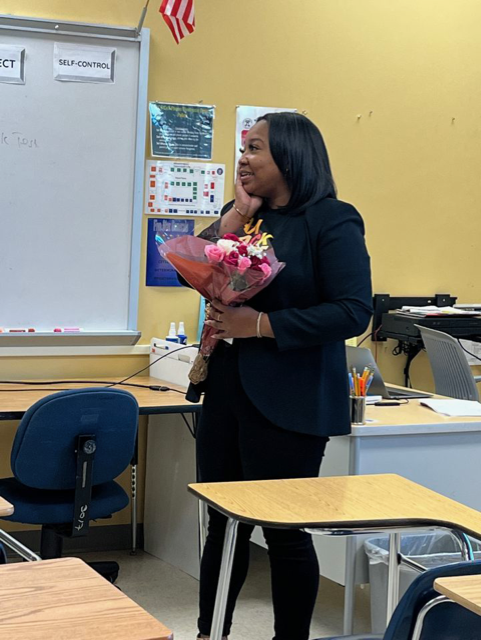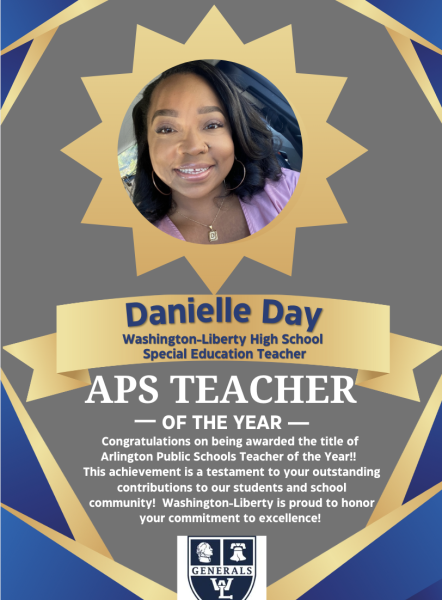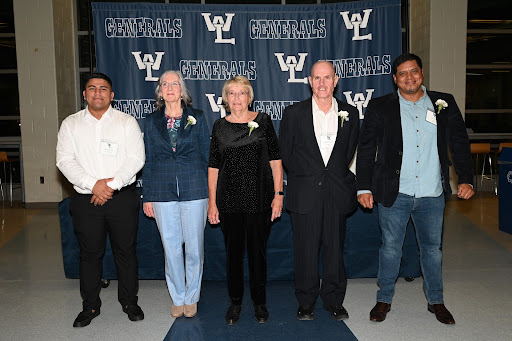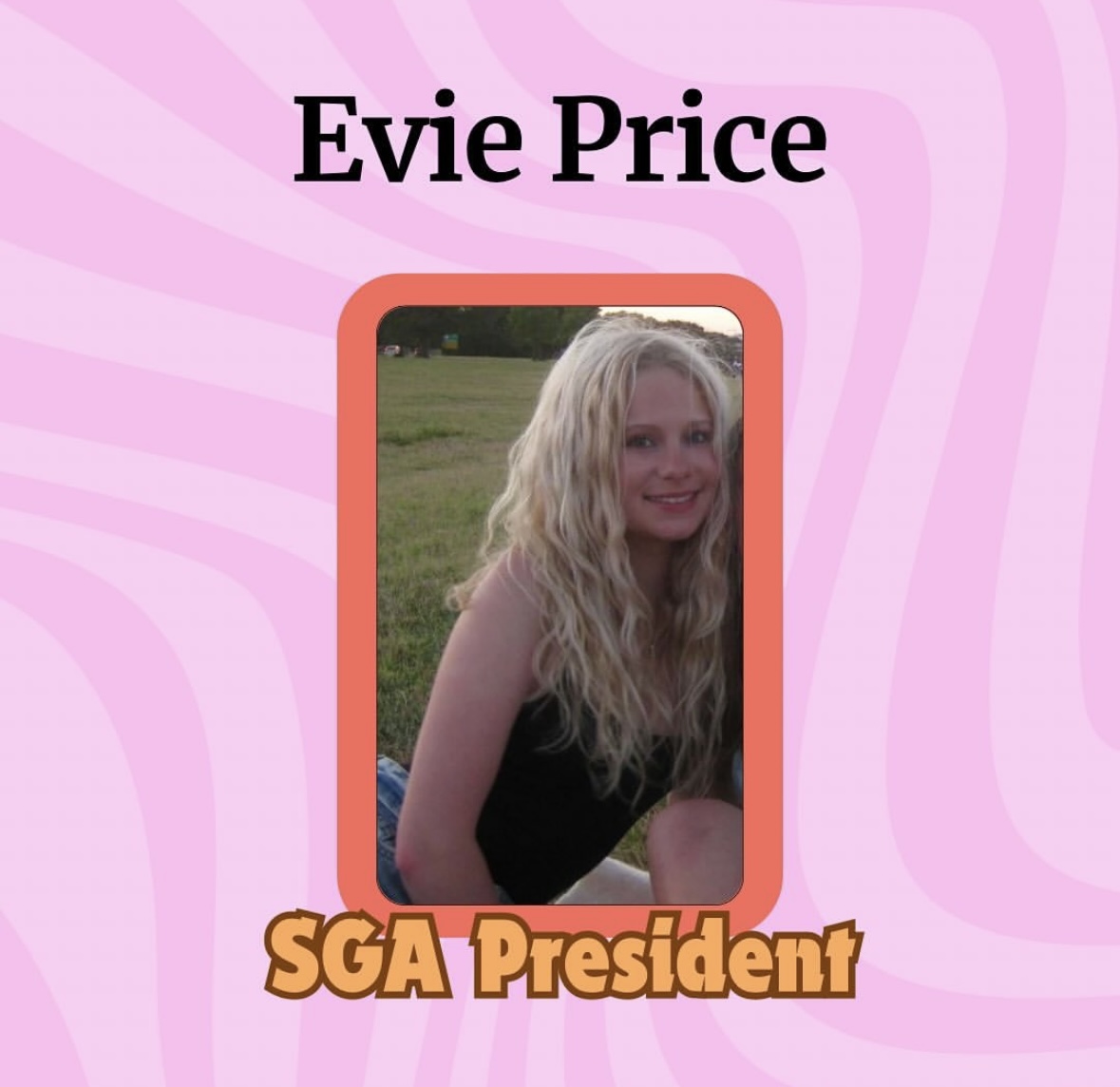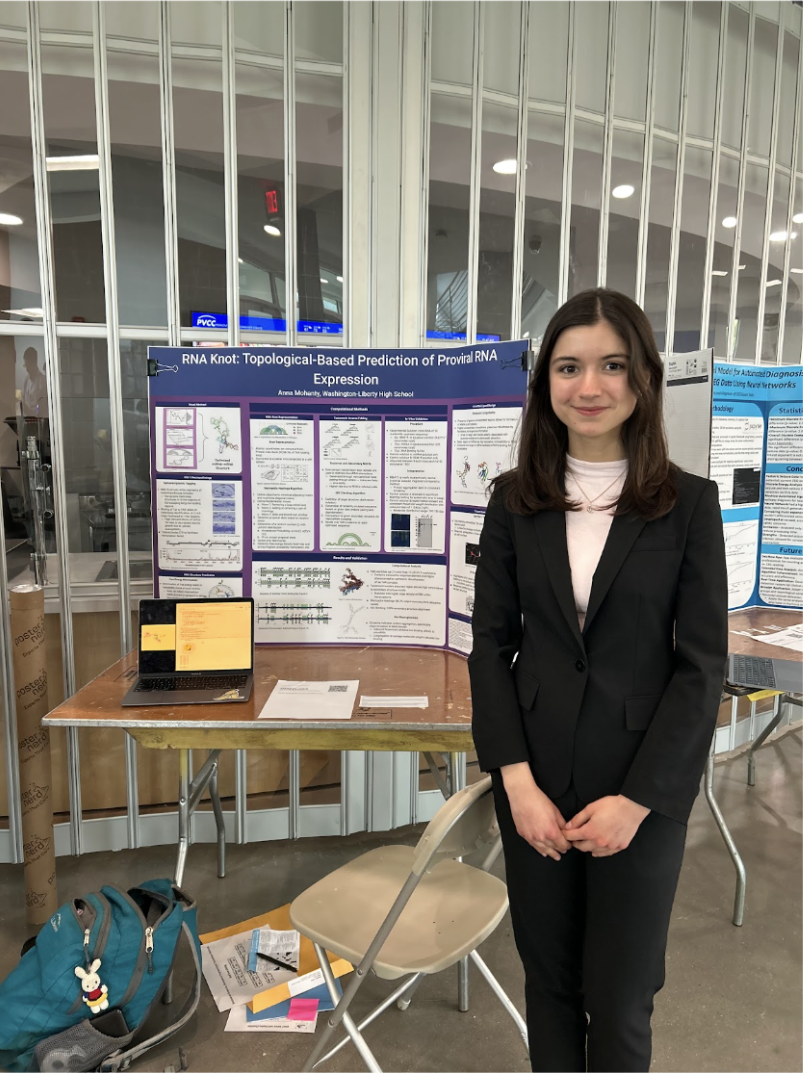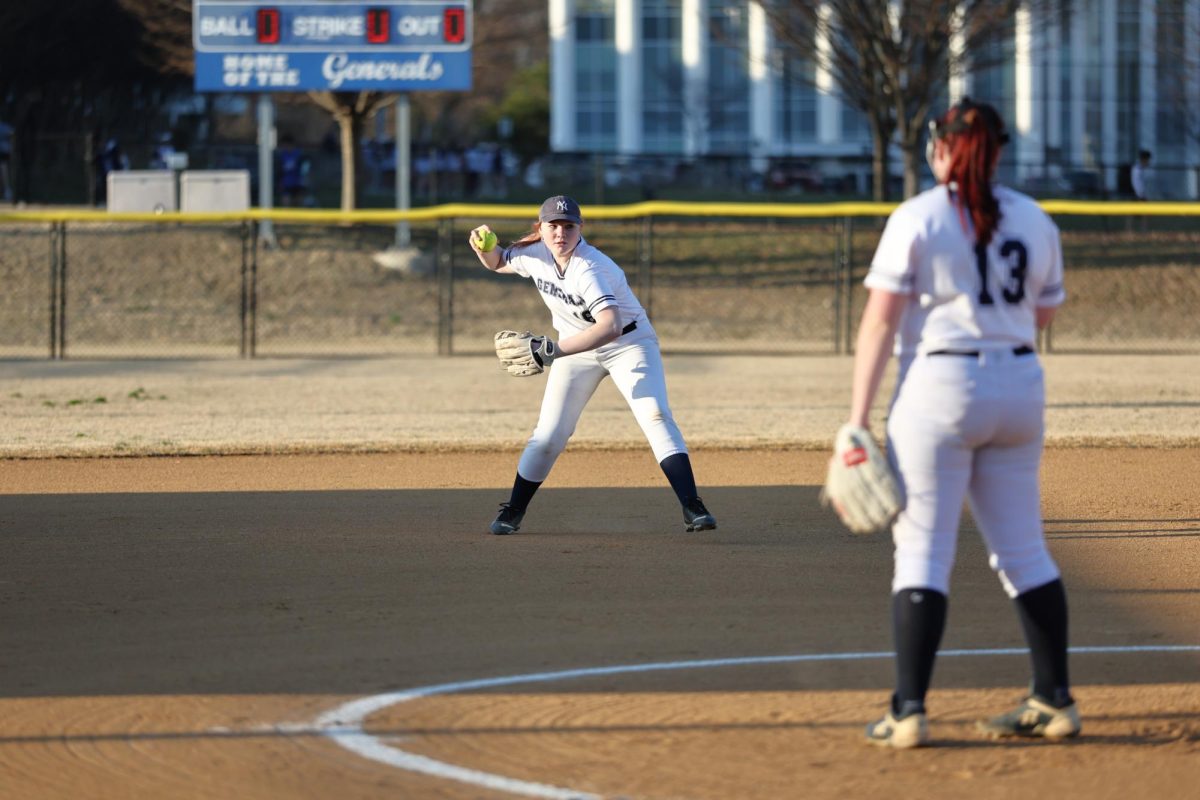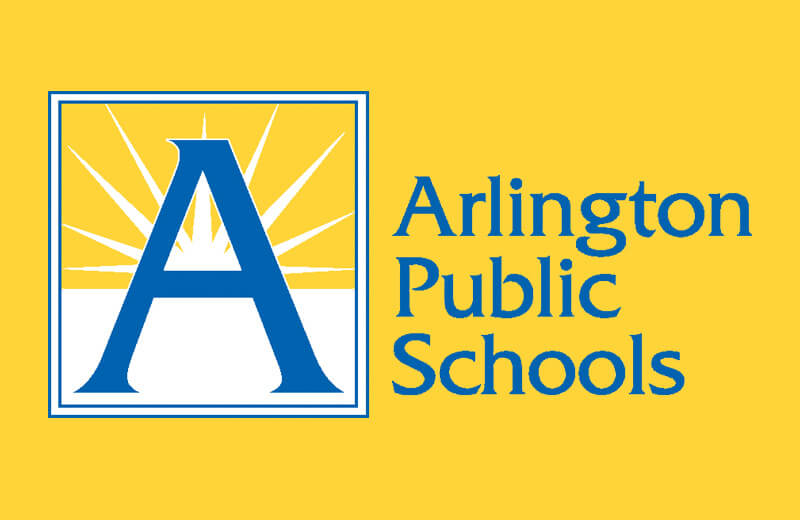The number of students from three to 21 who received special education or related services under the Individuals with Disabilities Education Act (IDEA) in 2021 was 7.3 million, or 15 percent of all public school students. However, the teachers responsible for the special education program are rarely recognized for their essential work. This year, in contrast, Ms. Danielle Day, special education teacher and co-department chair for the special education department, has become the Washington-Liberty (W-L) High School Teacher of the Year and the Arlington Public Schools (APS) Teacher of the Year.
Ms. Day grew up in the area and attended Drew Elementary School, Gunston Middle School and Wakefield High School. She attended Old Dominion University for three years, before leaving and finishing up her degree online. Her experience at Old Dominion University, working for her undergraduate degree in business, eventually led her to turn towards teaching.
“I came back because I was actually in a really bad space in college,” Ms. Day said. “It was my third year. I was a business major and I hated it. … I said ‘You know what, I should just come on home and stop wasting money, I should come home and figure out what I want.’ So I came home, and I started working here in Arlington in the extended day program with kids who have disabilities, and then I fell in love. Then I went back to school and now I’m here 10 years later.”
She then received her master’s degree from George Mason University. Her current role is as a special education teacher who teaches a social skills class and as the co-department chair for the special education department.
“I’m in meetings literally all day,” Ms. Day said. “I do get to teach one class, which is social skills. So I’m working with my students here who have autism and teaching them about self-regulation. … Then, I’m in a lot of meetings. I run a lot of meetings to help the other special education teachers here in the building, specifically IEP meetings.”
IEP, or individualized education program, is a program for special education students, whether they have autism spectrum disorder (ASD), attention-deficit hyperactivity disorder (ADHD), or any other educational disability. According to the Virginia Department of Education, it is a written statement that is designed to meet a student’s unique needs. The social skills class often serves students with IEPs.
“Our program supports students in the general education courses,” Ms. Day said. “I think we get mixed up a little bit, but our students are taking classes with everyone else. So, what we do is we come in and support them in their classes. So, they’re just taking general math classes, general science and histories. We’re supporting them in their classes and they also take the social skills class as well.”
She loves teaching her class and the joy of problem-solving in the special education field.
“I think what initially got me into teaching was I really love trying to figure out how students learn, especially students who[se], I like to say, brains are wired a little bit differently,” Ms. Day said. “That really makes me excited to figure out ‘Okay, well, there’s one way to do this, but there’s also other ways too,’ and so I liked the problem-solving aspect of it, being a special education teacher helping students like figuring out how they can access their education in a not-so-typical way.”
She remembers vividly the first time she did what she calls “modifying” in the extended day program.
“I had a student who was struggling with writing and motor skills,” Ms. Day said. “So, they were struggling, gripping, like crayons and gripping other materials to color, and things like that. And so, I made some crayons. I peeled like hundreds of crayons, and I put [them in] cupcake tins. And I put the crayons in there and I melted [them and] made these big round crayons for my students to grab who were struggling, grabbing the small pencils and the small crayons. That was my first thing where I was like, ‘Wow, like this is really cool.’ You just have to figure out a way that they can access what other people are accessing. So they were still able to color like everyone else, but they just needed something [with] a little bit [of a] bigger grip on [it].”
She has advice she wants to share with students, staff and teachers.
“I think I always say that people are very kind to people in wheelchairs, like they open the door for you, but what about a person who has ADHD, who may be struggling with focus or someone with autism who is struggling with sensory needs and lights?” Ms. Day said. “Those you can’t necessarily observe, but that doesn’t mean that they don’t have needs too, so hopefully the world can be a little bit more graceful.”
She won W-L Teacher of the Year and the Arlington Public Schools Teacher of the Year and is eligible for even bigger honors, such as the Washington Post Teacher of the Year and the Virginia Department of Education Teacher of the Year. When she won, she described feeling surprised and thankful.
“I was shocked [because] as a special education teacher, we’re not out at the forefront a lot,” Ms. Day said. “A lot of students probably don’t even know who I am in this building. And so, as a special education teacher, I wasn’t expecting to even get nominated just because we do a lot of background work. We’re not on the front lines all the time. So, when I found out, I was really, really excited and really honored.”
Special education teacher shortages exist in many schools and districts because of a lack of funding and resources. According to the Learning Policy Institute, in 2017, 49 states and the District of Columbia had a shortage of special education teachers.
“I also found out that I’m one of the first special education teachers ever in Washington-Liberty [High School] to ever win,” Ms. Day said. “So, that was really exciting and humbling and good for my team. I felt like this wasn’t just a win for me; it was a win for all of the special education teachers who don’t always feel like they’re noticed. So, I’m really honored that I got chosen.”
The main reward for winning Teacher of the Year is recognition and being able to list the honor on your resume.
“I do get a special luncheon with the superintendents and with all the rest of the people like the Principal of the Year [and] who won the Support Staff of the Year,” Ms. Day said. “That’s a really good opportunity to be able to have an intimate conversation with the person who’s running our school system. So, I think another good plus [is] to be able to have that conversation. And then I get award ceremonies and things like that.”
The Teacher of the Year award recognized her work, but she also advises students to thank their other teachers whenever possible.
“We spend a lot of time with you guys,” Ms. Day said. “We spend almost more time [together] than your family. We spend a whole day together, five days a week. … When they leave the classroom, [students] always say ‘thank you,’ and for a while, I was like, ‘What are they thanking us for?’ [However,] wow, we do put a lot into you all to help you grow and be amazing people. And so just even a small ‘thank you’ really means a lot to us.”
There are other ways to thank your teachers as well.
“The ways of saying thank you [are] giving cards and small tokens that [say that] you appreciate all that they do, but I think the biggest thing is just trying your best, whatever that best is for you,” Ms. Day said. “That doesn’t mean all A’s. It doesn’t mean all B’s. For some people, a C is their best. And, so, if you’re putting your all into your work in your assignments, I think that the biggest form of gratitude for teachers is just showing up, doing the best that you can, and just making good choices.”
In her free time, she likes to volunteer for a company called Autism on the Seas.
“We go on cruises with families who have individuals on the spectrum, and we support them on their cruise,” Ms. Day said. “So, I think a couple years ago I went on four cruises. It’s really fun and a time for me to still work on my skills as a teacher but not necessarily for pay or for work; it’s fun.”
However, she is studying to become a board certified behavior analyst, and that takes up most of her time. She went through the coursework and just finished her 2,000 training hours. Now, she is studying for the exam in August.
“[It is] all about ABA practices, so Applied Behavior Analyst analysis and incorporating behavior change through that,” Ms. Day said. “So, it’s a lot of graphs. It’s a lot of vocabulary. It’s a really, really well-known exam and very difficult to pass. My goal is to pass on the first try. So once school is done, I’ll be able to have the summer to study every single day, for probably four hours a day.”
Although she is studying hard to advance her career in her free time, she also wants to remember to be happy about being nominated Teacher of the Year.
“I grew up here and I started from a very, very low point in my education and in my career,” Ms. Day said. “I had to start over from scratch. So, I think there were a lot of moments where I was like, ‘This is not going to work, I’m not going to make it through working full time, [with] school full time,’ but it feels good to see all that I’ve done [and that I’ve] come this far.”


